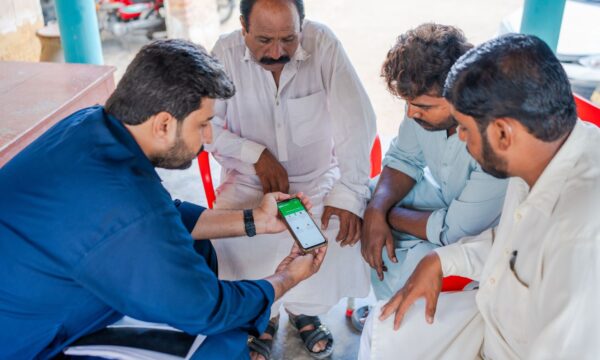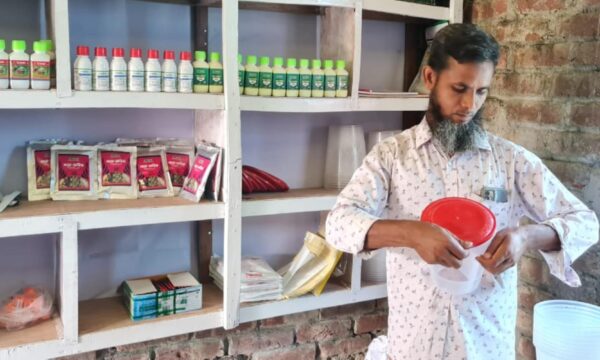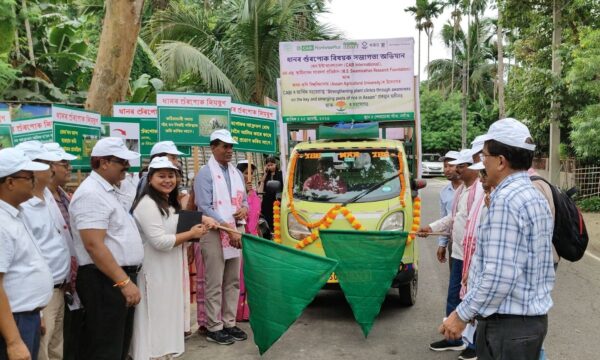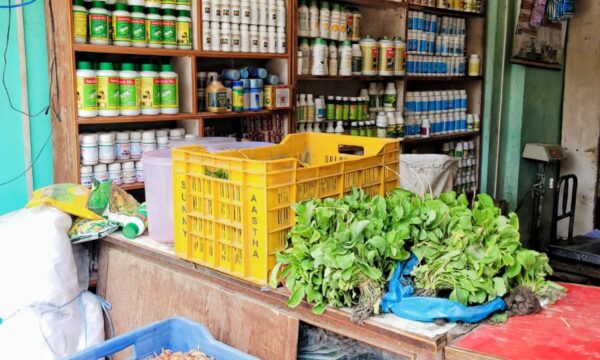CABI’s PlantwisePlus programme recently hosted a webinar to raise awareness and potential solutions to the challenges around post-registration pesticide reviews – a vital stage in the review process that helps ensure compliance with safety regulations and trade facilitation.
The webinar is part of a series of regional and national dialogues – both virtual and in-person – that PlantwisePlus is facilitating alongside Kenya’s Pest Control Products Board (PCPB) and Uganda’s Ministry of Agriculture, Animal Industry and Fisheries (MAAIF). The dialogues aim to share knowledge and experiences on post-registration review systems.
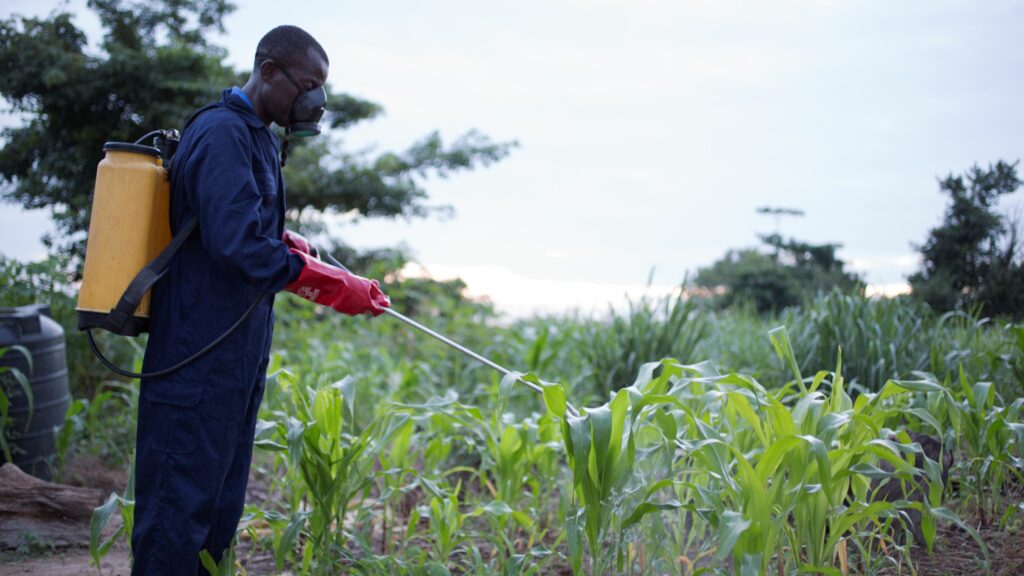
PlantwisePlus helps to empower smallholder farmers to grow safe and high-quality foods through sustainable crop production practices. Through its Pesticide Risk Reduction pathway, the programme aims to raise awareness of lower risk pest management solutions, improve access to them, and encourage their use.
During the session, leading experts from PCPB, MAAIF and the Swedish Chemicals Agency (KEMI) shared their insights from their respective countries, the European Union and global perspectives – drawing on the experience of a member of the FAO/WHO Joint Meeting on Pesticide Management. They best practices for strengthening post-registration review systems. The webinar featured presentations by:
- ● Dr Githaiga Wagate, Pest Control Products Board (PCPB), Kenya
- ● Dr Paul Mwambu, Ministry of Agriculture, Animal Industry and Fisheries (MAAIF), Uganda
- ● Ulrike Frank, Swedish Chemicals Agency (KEMI), Sweden
- ● Helena Casabona, Swedish Chemicals Agency (KEMI), Sweden
Post-registration pesticide reviews
Pesticide registration is an important process that ensures pest control products do not pose unacceptable risks to human health and the environment. It also supports sustainable trade facilitation. However, as agricultural needs evolve and new data emerge, regulators may need to re-evaluate pesticides that were previously registered.
Post-registration reviews are therefore essential to assess whether registered products continue to meet safety standard, remain effective and retain their economic value. They enable regulators to reassess risks and adapt regulations to protect human health, the environment and trade.
Policy insights and regulatory practices
Throughout the webinar, the experts discussed how different countries and regions implement, adapt, and strengthen their post-registration review systems. The importance of basing regulatory decisions on risk assessments, using the latest data, and tailoring approaches to local realities was a recurring theme.
Speakers shared experiences around legislative reforms, data-driven frameworks, and the digitization of regulatory systems. They emphasized that while countries are at different stages of developing post-registration systems, there are common challenges.
These include data gaps, capacity limitations, and resource constraints that can be tackled more effectively through regional collaboration and shared learning.
Regional highlights
During the webinar, experts shared insights from their respective countries. In Kenya, regulators have adopted a risk-based framework that prioritizes substances posing potential health, environmental, or trade risks. They have also introduced digital tools to enhance efficiency and transparency in pesticide regulation, post-registration enforcement and pesticide residue monitoring.
Uganda, meanwhile, is focusing on legislative reforms, digitization, and market surveillance to strengthen oversight of agricultural chemicals. Further, efforts are underway to align national systems with international standards, supported by targeted training and stakeholder engagement.
From Sweden, insights were shared into the EU’s established systems for post-registration review, including renewal programmes, standardized risk assessment procedures, and international cooperation. These models offer valuable lessons for adaptation in other regions.
Shared challenges and common goals
Despite the varied contexts, several shared themes emerged from the discussions. All speakers highlighted the need for up-to-date scientific data, stronger inter-agency coordination, and ongoing capacity building. Participants acknowledged common challenges across the board, including limited data access, resource constraints, and enforcement gaps.
Speakers also highlighted the value of international frameworks promoted by FAO and WHO, as well as the importance of continued dialogue and experience-sharing. While approaches may differ, the collective goal remains the same: to ensure that pesticide products in use are safe, effective, and appropriate to changing conditions.
The webinar served as a timely reminder that effective post-registration systems require collaboration, commitment, and adaptability.
Concluding reflections
In the closing session, participants raised practical questions around financing, data management, and regional harmonization. The webinar concluded with a shared understanding of the importance of keeping post-registration reviews high on the policy agenda.
Reflecting on the event, Mary Lucy Oronje, Senior Scientist in Sanitary and Phytosanitary at CABI, and moderator of the webinar, said: “We learned some of the best global practices in post-registration reviews and of the importance of learning from one another. Whether we are just beginning or refining our systems, we each have something to contribute and something to take forward.”
Related blogs
Paving the way for lower-risk crop protection: Biopesticide regulatory pathways
Further information
PlantwisePlus gratefully acknowledges the financial support of the Directorate-General for International Cooperation, Netherlands (DGIS); European Commission Directorate General for International Partnerships (INTPA); UK International Development from the UK government; and the Swiss Agency for Development and Cooperation (SDC) for the PlantwisePlus programme.
Click here for information on PlantwisePlus’ approach to pesticide risk reduction and further contact details.
Related News & Blogs
In photos: how plant clinics support advisory services in Bangladesh
Over the past decade, CABI has worked in Bangladesh to strengthen national plant health systems, first through Plantwise and since 2021, PlantwisePlus. The programme works with partners to ensure farmers have access to reliable, science-driven crop hea…
24 February 2026

